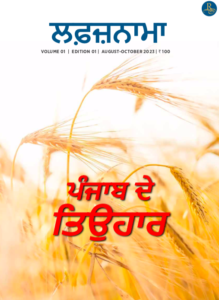LOVE, THY NAME IS ENDURANCE

Love is the most exquisite feeling on this earth. Fortunate are the ones who bask in the warmth of love and equally fortunate are the ones who enjoy the company of their first love even in the twilight years of their life for they can tell, time and again, tales of their first encounter and still feel butterflies in their bellies.
Well, let us leave the lucky lovebirds to roost cosily in their nests while we talk about the ones whose love remains unrequited or unfulfilled. Unrequited love can be due to the tragic separation of the lovers or due to one-sided affiliation but that factor remains unaccountable in the great scheme of things. Who would have remembered Laila-Majnu, Sheerin-Farhad, Heer-Ranjha, Sassi-Punnu and Sahiba-Mirza if their love stories were not tragic?
Imagine a scenario where Mirza was allowed to marry Sahiba with the blessings of their elders. Both would have settled down, had a brood of their own, Mirza would go out to work in the fields, come home late tired and covered in muck, eat his dinner and listen to Sahiba’s vagaries related to her unending daily chores and the cacophonic hullabaloo caused by their children running amok. Both would have ended up being unsung and unrecognised. I know of many such love stories of couples who fought against their parents and society to end up being together. They are brave yet ordinary couples whose stories would die with them or perhaps a few generations after them.
The tales, on the other hand, of unrequited love become immortal. It adds a certain depth, a sense of tragedy and a whole new perspective to ordinary and fulfilled love. Had Shiv Batalvi married the girl of his dirges, he wouldn’t have become ‘Birha da Sultan’. Who can challenge the poignancy of pain when the ‘Sultan’ himself demands,
Yaar adeya rabb karke mainu, paen birha de keede we…
(O friend, for God’s sake, I implore you to infest me with the worms of separation)
The pathos and passion generated from one-sided love manifested his pining and yearning in the form of highly descriptive lyrics like,
Maye ni maye, main ik shikkra yaar banaya…
Choori kuttan te oh khanda na ae,
We, asaan dil da maas khawaya…
(O Mother! I have befriended a bird of prey…
I offered it crushed morsel, it declined
So, I offered it the flesh of my heart)
No wonder, the forsaken lover went on to become the youngest recipient of the Sahitya Akademi Award in 1967 for such profundity requires a nagging ache in the soul or a pricking sensation in the heart- ‘khalish’.
Faiz Ahmed Faiz endorses unrequited love in the following couplet as such,
Gar baazi ishq ki baazi hai
To jo bhi lagado darr kaisa
Jeet gaye to baat hi kya,
Haare bhi to haar nahi…
‘These are the stories that we remember not because they ended with the altar or a fat smiling baby, but because they ended with a feeling of burning loss and enduring passion.’
Heathcliff would not have been ‘Heathcliff’ had Catherine married him and settled with him happily ever after. ‘Nelly, I am Heathcliff!’ would have lost its plaintiveness had the star-crossed lovers tied the nuptial knot. The same goes for Romeo and Juliet and more recently for Hazel Lancaster Grace and Augustus Walters in The Fault in Our Stars.
Those of us who read The French Lieutenant’s Woman by John Fowles during our Masters’ degrees, often thought about the complexities presented by the writer in the union of the two lovers. Despite the writer offering two endings to the story, none of them appears to be satisfactory to an ordinary reader who yearns for a happy culmination. In both the scenarios presented by Fowles, he advises the reader to accept that love cannot always be requited for, love quite like life ‘cannot be solved, but is meant to be endured.’















